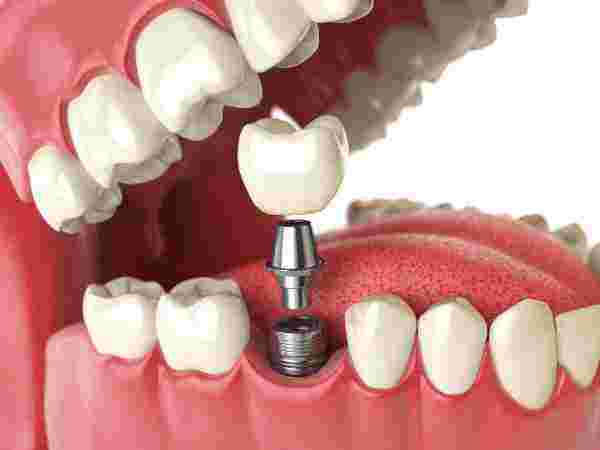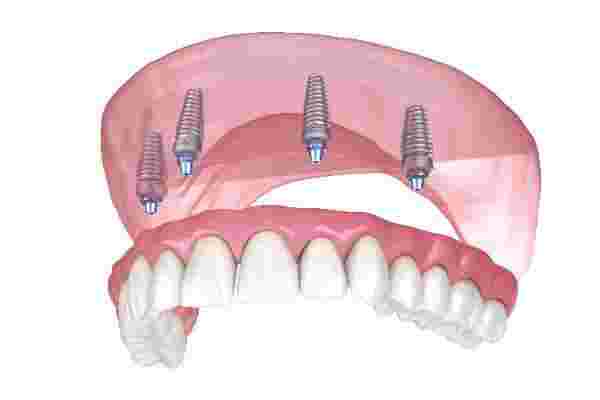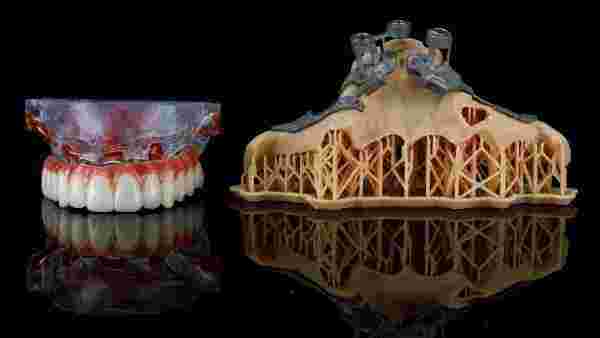Dental implants are now regarded as one of the most reliable options for replacing lost teeth. Their durability, natural appearance, and ability to restore full function make them a preferred choice for many patients. Despite their increasing popularity, myths and misunderstandings about the process and outcomes still persist. Misinformation can discourage people from exploring implants, even when they could be the ideal solution.
In this blog, we’ll explore and debunk 10 of the most common myths about dental implants, so you can make informed decisions about your oral health with confidence.
1. Dental Implants Are Only for the Elderly
It’s a widespread myth that dental implants are only for older adults. In reality, anyone over 18 with fully developed jawbones and good oral health can be a suitable candidate.
Key factors include:
- Age is not a determining factor
- Health and jawbone condition are essential
- Common among young and middle-aged adults after accidents or decay
- Often chosen after failed root canal treatments

Thus, age doesn't limit your eligibility for dental implants, but overall health plays a significant role.
2. Getting Implants Is Painful
Many people assume implant surgery is very painful, but the procedure is usually performed under local anaesthesia, minimising discomfort.
Key points:
- Post-operative symptoms like swelling and mild soreness are common
- Managed with over-the-counter medication
- Symptoms typically last only a few days
- Many patients report discomfort similar to a tooth extraction
Overall, dental implant surgery is not as painful as commonly perceived, with minimal discomfort during and after the procedure.
3. Dental Implants Are Too Expensive
While implants are undoubtedly an investment, it's crucial to take into account their long-term value. Traditional bridges or dentures may have lower upfront costs, but they often require replacements, adjustments, and maintenance.
Here’s a simple comparison to highlight cost-effectiveness:
| Treatment | Average Lifespan | Replacement Needed? | Maintenance Cost |
| Dentures | 5–10 years | Likely | Moderate |
| Dental Bridges | 7–15 years | Possible | Moderate |
| Dental Implants | 20+ years | Rare | Low |
Dental implants offer greater longevity and fewer ongoing expenses over time, making them a financially sound choice.
4. The Procedure Is Risky
Dental implant surgery is one of the safest and most predictable procedures in modern dentistry, with success rates ranging from 95% to 98% in healthy patients.
Key points:
- Every surgery carries some risk, but implants are highly safe
- Success rates are high in healthy individuals
- Technologies such as 3D imaging and digital planning improve accuracy and safety.
- Seeking a consultation with an experienced emergency dentist in Swindon helps assess suitability and manage risks
Dental implants, supported by advanced technology, are a reliable option for most patients when performed by skilled professionals.
5. Dental Implants Don’t Look Natural
Gone are the days of noticeable metal posts and mismatched crowns. Modern dental implants are custom-designed to blend seamlessly with your natural teeth.
Key points:
- Custom-designed to match the shade, shape, and size of natural teeth
- Provides a more natural and aesthetically pleasing result
- Advanced technology ensures a perfect fit
- Eliminates the appearance of traditional metal implants
Today's dental implants offer a more refined, natural look, ensuring that your smile remains intact and beautiful.
6. Implants Require Too Much Maintenance
Another misconception is that implants require complex or extensive upkeep. The reality is quite the opposite. Caring for your implants is much like taking care of your natural teeth.
Basic care for dental implants includes:
- Brushing twice daily with a soft-bristled toothbrush
- Flossing or using interdental brushes
- Regular dental check-ups and hygienist visits
- Avoiding excessive force (e.g., opening bottles with teeth)
If you're consistent with good oral hygiene, your dental implant will stay healthy and last for decades.
7. You Can’t Get Implants If You’ve Lost Bone
Bone loss in the jaw is common after tooth loss, but it doesn't eliminate the possibility of dental implants. In many cases, bone grafting or sinus lifts can rebuild the area, making implants viable.
Key points:
- Bone grafting or sinus lifts help restore bone density
- Cutting-edge techniques allow for the placement of implants even in cases of bone loss.
- In-depth assessments are crucial for personalised treatment plans
- Ideal for those exploring dental implant services in Swindon
Personalised treatment planning ensures successful outcomes, even for patients with bone loss, making implants a viable solution.
8. Implants Can Fall Out Easily
Many fear that implants might fall out, but they actually undergo osseointegration, where they fuse with the jawbone, becoming extremely stable.
Key points:
- Implants fuse with the jawbone, ensuring stability
- Often stronger than natural tooth roots
- Failures are rare and typically linked to health issues or poor oral hygiene
Once integrated properly, dental implants are secure and reliable, providing long-term solutions for tooth replacement.
9. Dentures Are Better Than Implants
While dentures offer a solution for many people, they come with limitations, such as slipping, clicking, and difficulty eating certain foods.
Here’s a quick comparison:
| Feature | Dentures | Dental Implants |
| Stability | May shift | Permanently fixed |
| Comfort | May cause sores | Feels like natural teeth |
| Speech | Affected | Natural |
| Bone preservation | No | Yes |
If you're unsure which is right for you, a consultation with an emergency dentist in Swindon can help you understand the pros and cons based on your individual needs.
10. Any Dentist Can Do Implants
Not all dentists have the same training when it comes to implants. Implantology is a specialised area that requires advanced education, surgical experience, and precision.

When searching for a provider, whether you're considering dental implant Swindon services or anywhere else, ask the following:
- How many implant procedures have they performed?
- Are they qualified in implant dentistry?
- Do they use digital planning tools?
- Can they show before-and-after cases?
Choosing a qualified, experienced dentist ensures the best outcome and reduces the risk of complications.
Conclusion
Dental implants are one of the most advanced and reliable options for restoring your smile. Yet persistent myths can cloud judgement and deter people from making a life-changing choice. By understanding the truth behind these misconceptions, you’re empowered to take the next step with clarity and confidence.
If you’re considering implants or need expert advice tailored to your needs, we encourage you to speak to a trusted provider in your area. At Swindon, our team is committed to helping you rediscover your smile with precision, care, and the highest standards in modern dentistry.




